
Hot Rollers Vs. Curling Irons: What are the Distinctions?
We’ve all faced that moment—standing in the hair tools aisle (or scrolling online), torn between choosing hot rollers or a curling wand. Both promise to deliver sleek waves or voluminous curls, but how do you decide which suits your needs? Let’s compare their features, advantages, and drawbacks so you can skip the guesswork and get straight to the good hair days.
What Are Hot Rollers?
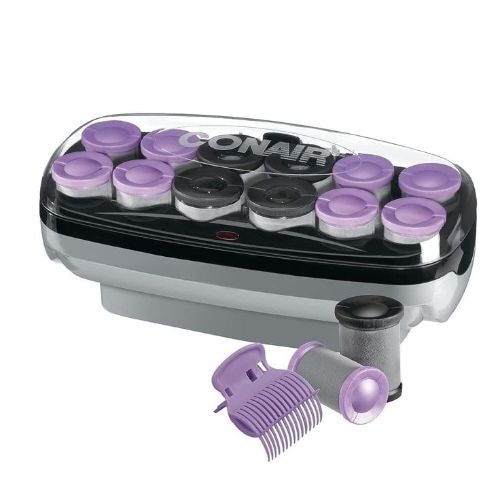
Source: Pinterest
Hot rollers are these awesome heatable cylindrical rods (often ceramic or velcro-friendly) that you wrap your hair around to get those dreamy curls or waves. No need for the hassle of clamping or twisting like with a curling iron—you just roll, secure, and let the heat do its thing. Most sets come with clips or pins to keep everything in place while you chill and wait for the magic to happen. Super easy and super stylish!
Pros and Cons of Hot Rollers
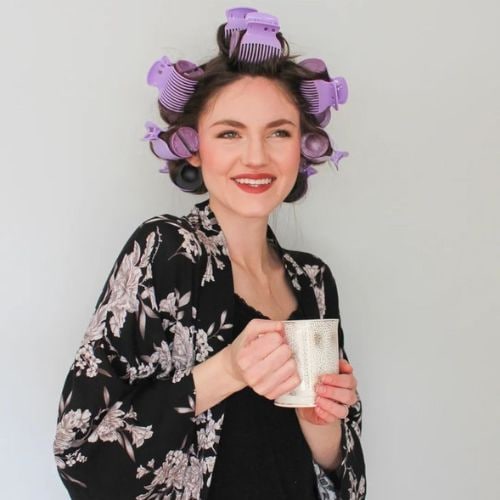
Source: Pinterest
Pros of Hot Rollers:
✅Gentler on hair: Less direct heat exposure means a reduced risk of damage.
✅Volume for days: Perfect for lifting roots and creating long-lasting, soft curls.
✅Multitask-friendly: Roll your hair, do your makeup, sip coffee—they work while you do you.
✅Uniform results: Great for consistent, loose waves, or retro-inspired styles.
Cons of Hot Rollers:
❌Time-consuming: Takes 15–30 minutes to set and cool. Not ideal for rushed mornings.
❌Learning curve: Positioning rollers evenly takes practice.
❌Less precision: Struggles with short layers or specific curl patterns.
What Are Curling Irons?
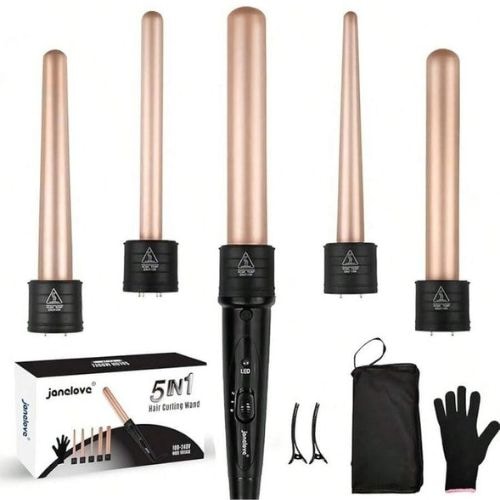
Source: Pinterest
Curling irons are heated styling tools, commonly made of ceramic, tourmaline, or titanium, which can be used to build a variety of curls. With a cylindrical barrel, they are available in different sizes and can create a variety of curls, from tight spirals to loose waves.
Also Read: What Is the Difference between Hot Combs and Flat Irons
Benefits and Drawbacks of Curling Irons
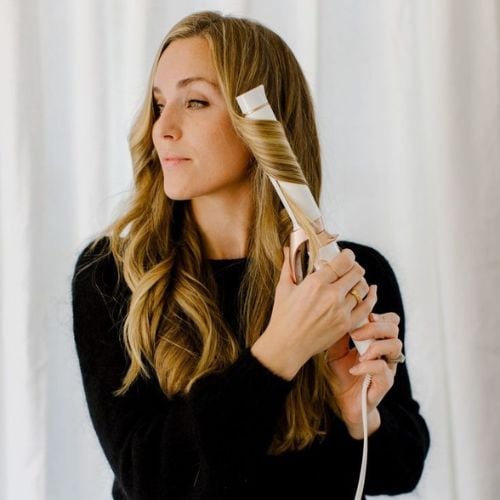
Source: Pinterest
Benefits of Curling Irons:
✅Precision styling: Tight spirals, beachy waves, or piece-y ends—you’re in control.
✅Quick results: Once it’s hot, you can curl a full head of hair in minutes.
✅Total control: Adjust curl tightness, direction, and placement.
✅Works for all lengths: Even pixie cuts can rock a flipped-out end.
Drawbacks of Curling Irons:
❌Can cause damage: Direct, high heat can take a toll on your hair over time.
❌Shorter-lasting curls: Unless you’re using strong-hold products, curls may drop faster.
❌More effort is required: You’re actively holding and curling each section—no multitasking here.
Hot Rollers Vs. Curling Irons: What Are the Differences?
While both tools aim to curl your hair, their approach are pretty different.
| Category | Hot Rollers | Curling Irons |
| Styling Method | Roll heated rollers into dry or slightly damp hair and let them set while they cool. | Manually wrap sections of hair around the heated barrel and hold for a few seconds. |
| Time & Process | Takes longer overall but is hands-free once the rollers are in. | Quicker to curl each section, but requires constant attention. |
| Results | Soft, voluminous curls with natural body and bounce. | More defined and tighter curls or waves, depending on barrel size. |
| Ease of Use | Beginner-friendly; minimal technique required once rolled. | Requires practice for consistent curls and avoiding burns. |
| Damage Potential | Lower risk of heat damage due to lower and indirect heat. | Higher risk due to direct high heat on hair strands. |
| Longevity | Curls may be softer and fall faster, especially on fine hair. | Curls usually last longer, especially with styling products. |
Styling Method
Hot Rollers: Heated rollers, using electricity or steam, are applied to hair and set the curl as they cool. Typically used on dry hair, some can be used on damp hair for a softer hold.
Curling Irons: Direct, adjustable heat is applied instantly. Hair is wrapped around a heated barrel, with curls are formed immediately. Used on dry hair to avoid damage.
Time & Process
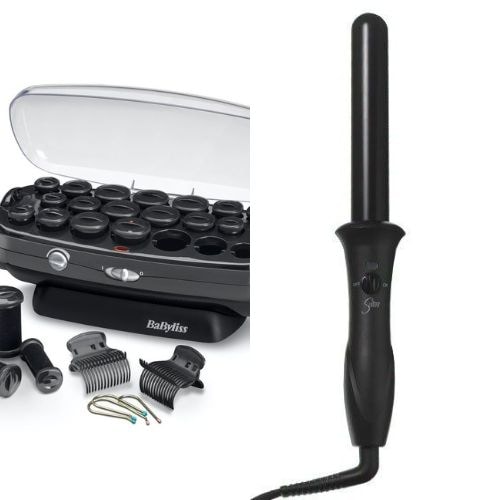
Hot Rollers: Longer process—rollers must heat up, then remain in hair for 10-30 minutes. Allows multitasking while hair sets.
Curling Irons: Quick results (5-15 minutes total). Each section is styled individually with immediate results.
Results
Hot Rollers: Soft, voluminous, natural-looking curls or waves. Lift roots for added volume. Curls may loosen over time.
Curling Irons: Versatile, defined curls (tight ringlets to loose waves). Offers precision and varied techniques (e.g., beach waves, spirals).
Ease of Use
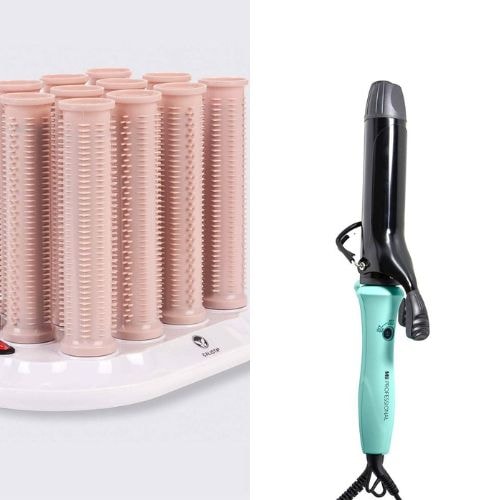
Hot Rollers: Can be tricky to position and secure, especially for beginners. Requires waiting time but less manual dexterity.
Curling Irons: Requires practice to handle heat and wrap hair smoothly. More control over curl placement and tension.
Damage Potential
Hot Rollers: Lower risk due to indirect heat and gradual cooling. Suitable for frequent use.
Curling Irons: Higher risk from direct, high-heat exposure. Regular use without heat protectant can lead to dryness or breakage.
Longevity of Curls
Hot Rollers: Curls often last longer (up to 24 hours) due to the cooling setting process.
Curling Irons May require hairspray for hold; curls can loosen faster, especially in humidity.
Final Thoughts
Hot rollers and curling irons both create beautiful curls, but neither is inherently superior. The best choice depends on individual hair type and styling preferences. Hot rollers offer easy, effortless glamour while curling irons provide greater versatility and on-the-fly style adjustments. Ultimately, the right heat tool will deliver the curls you desire.